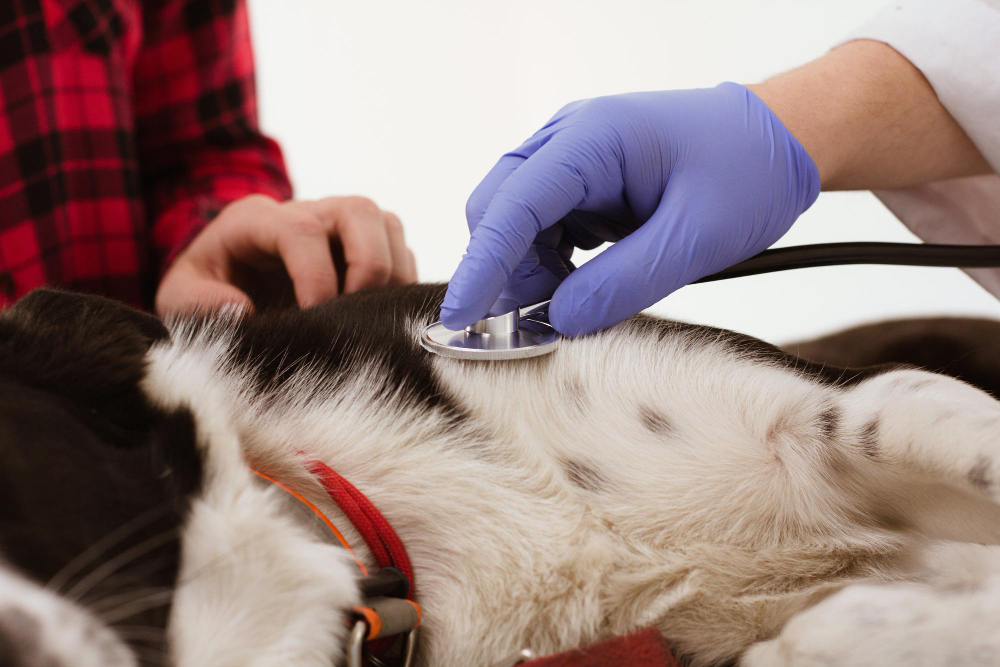How Veterinarians Support Families Through In-Home Euthanasia

How Veterinarians Support Families Through In-Home Euthanasia

Saying goodbye to a beloved pet is one of life's most difficult moments. When that time comes, many pet owners face the challenging decision of where and how to help their furry family member pass peacefully. While traditional veterinary clinics offer euthanasia services, an increasing number of families are choosing in-home euthanasia as a more comfortable and dignified option for their pets' final moments.
Veterinarians who provide in-home euthanasia services play a crucial role in making this heartbreaking process as peaceful and stress-free as possible. These compassionate professionals bring their expertise directly to your home, allowing your pet to remain in familiar surroundings surrounded by the people they love most.
Understanding what veterinarians do during in-home euthanasia can help pet owners make informed decisions and prepare for this difficult but loving final act of care.
What Makes In-Home Euthanasia Different
In-home euthanasia offers several advantages over clinic-based procedures. Your pet doesn't experience the stress of traveling to an unfamiliar place or being around other animals and medical smells. Instead, they can rest comfortably in their favorite spot—whether that's curled up on the couch, lying in a sunny patch of grass in the backyard, or snuggled in their own bed.
Veterinarians who specialize in this service understand that the home environment requires a different approach than a clinical setting. They arrive prepared with all necessary equipment while maintaining a gentle, respectful demeanor that honors both the pet and the family's emotions during this tender time.
The process typically allows more time for goodbyes and can accommodate the entire family, including children who want to be present. This flexibility helps create a more natural and peaceful experience that many families find healing.
The Veterinarian's Role Before the Procedure
When you contact a veterinarian for in-home euthanasia, the process begins with careful consultation and preparation. Many veterinarians will discuss your pet's condition over the phone, reviewing medical history and current symptoms to ensure euthanasia is the appropriate choice.
During this initial conversation, the veterinarian will explain the entire process, answer questions, and help you prepare for what to expect. They may provide guidance on how to discuss the situation with family members, especially children, and offer resources for coping with pet loss.
The veterinarian will also coordinate scheduling to ensure they can arrive at a time that works best for your family. Many practitioners offering this service understand that these situations can be urgent and strive to accommodate same-day or next-day appointments when possible.
Before arriving at your home, veterinarians prepare all necessary medications and equipment. They also take time to review your pet's specific situation to ensure they can provide the most compassionate care possible.
What Happens During the Visit
When the veterinarian arrives at your home, they'll typically spend a few minutes getting acquainted with your pet and assessing their current condition. This helps confirm that euthanasia is indeed the most humane option and allows the veterinarian to plan the most comfortable approach.
Many veterinarians will first administer a sedative to help your pet relax completely. This step is particularly important for anxious pets or those in pain, as it ensures they're calm and comfortable before the final injection.
The veterinarian will explain each step of the process as it happens, keeping communication open with the family. They understand that witnessing this procedure can be emotionally overwhelming and work to make the experience as gentle as possible.
The actual euthanasia involves administering a barbiturate medication, typically pentobarbital, directly into a vein. This medication works quickly to induce deep anesthesia followed by cardiac arrest. Most pets pass peacefully within seconds to a minute, simply appearing to fall into a deep sleep.
Supporting Families Through the Process
Veterinarians providing in-home euthanasia services are trained not just in the medical aspects of the procedure, but also in supporting grieving families. They understand that pets are family members, and their death represents a significant loss.
During the procedure, veterinarians often encourage family members to stay close to their pet, offering comfort through gentle petting and soothing words. They may suggest ways to make the experience more meaningful, such as playing soft music or having favorite treats nearby.
After the pet has passed, veterinarians typically allow families as much time as they need to say their final goodbyes. They respect the family's wishes regarding whether they want to be alone with their pet or have the veterinarian remain present during this time.
Many veterinarians also provide information about aftercare options, including burial, cremation services, and memorial keepsakes. Some work with local pet crematoriums to arrange pickup services, while others can provide referrals to reputable providers.
The Emotional Aspects of the Work
Veterinarians who choose to provide in-home euthanasia services often describe it as some of the most meaningful work they do, despite its emotional challenges. These professionals understand that they're not just ending suffering—they're providing a final gift of love and dignity to both pets and their families.
The work requires exceptional emotional intelligence and communication skills. Veterinarians must balance professional competence with genuine compassion, knowing when to offer guidance and when to simply provide quiet support.
Many practitioners in this field report that while the work can be emotionally demanding, seeing families able to say goodbye to their pets in a peaceful, loving environment makes the challenges worthwhile.
Preparing for Your Veterinarian's Visit
When scheduling in-home euthanasia, families can take several steps to prepare for the veterinarian's arrival. Creating a comfortable space where your pet can lie down peacefully is important—this might be their favorite bed, a soft blanket, or even outside in the garden if weather permits.
Consider who will be present during the procedure. While some families want everyone there, others prefer a smaller, quieter gathering. Discuss this with family members beforehand and communicate your wishes to the veterinarian.
If you have other pets in the home, decide whether they should be present or kept in another room. Some veterinarians believe other pets benefit from witnessing the process to understand what happened, while others recommend keeping them separate to avoid confusion or stress.
Think about any special requests you might have, such as having your pet's favorite toy nearby or playing specific music. Most veterinarians are happy to accommodate these meaningful touches that can make the experience more personal and comforting.
Making This Difficult Decision
Choosing in-home euthanasia represents a final act of love for your pet. While the decision is never easy, having a skilled, compassionate veterinarian provide this service in your home can make the process more peaceful for everyone involved.
The veterinarians who offer these services understand the profound bond between pets and their families. They're committed to ensuring that your beloved companion's final moments are filled with love, comfort, and dignity.
If you're considering in-home euthanasia in Jupiter, FL, contact Rover Veterinary Care today for more information. Their compassionate team understands how difficult this decision can be and is here to support you and your beloved pet through this tender time.
